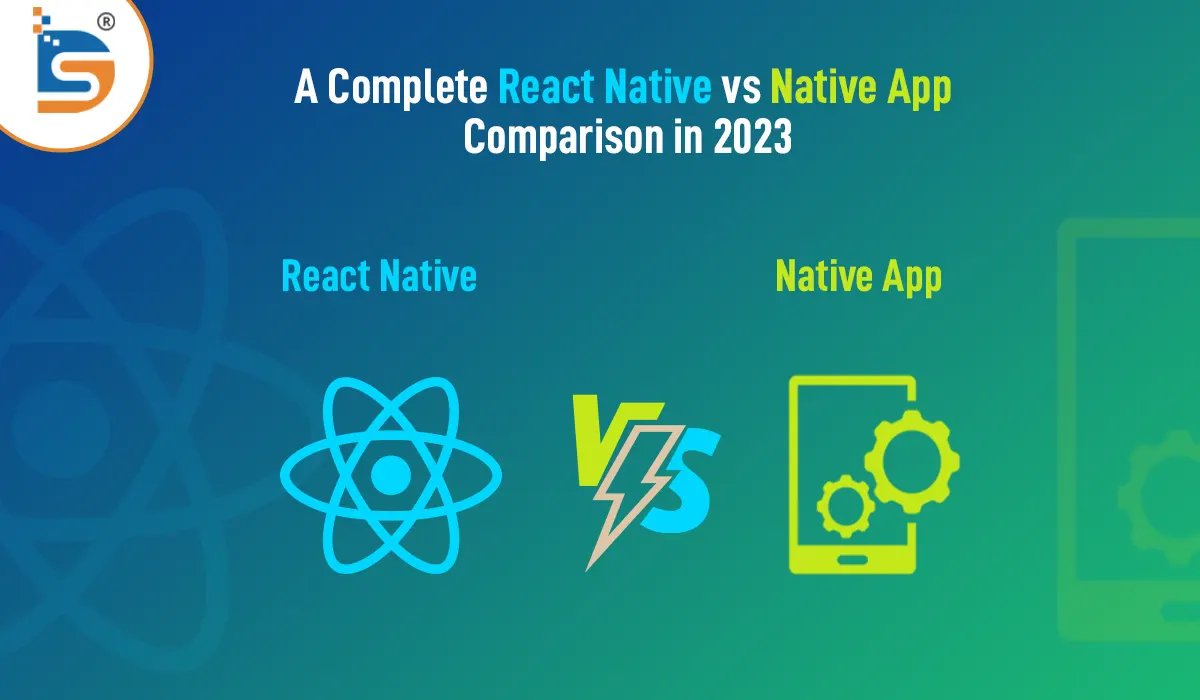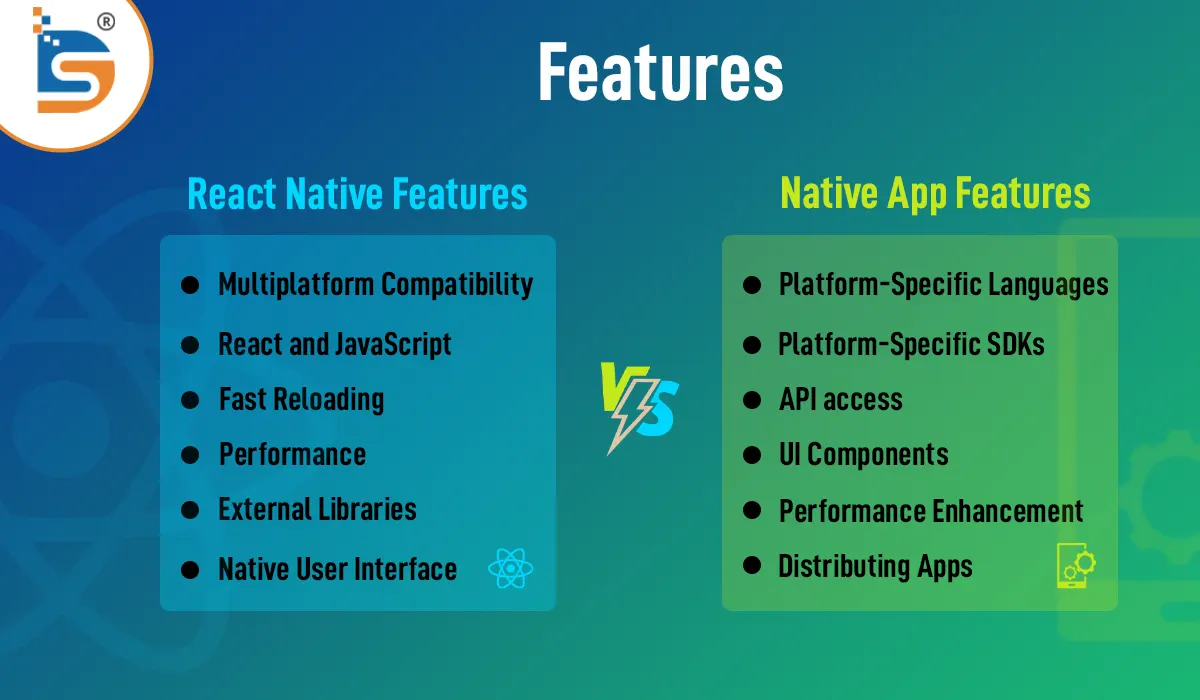A Complete React Native Development vs Native App Development Comparison in 2023
BY : Sdreatech
28-Aug-2023

If you are looking to build an app, you are probably already familiar with the two main virtual reality development platforms: React Native and Native. Both React Native and native apps are popular choices for app developers. However, not all apps can be built with native app development.
In this article, we will discuss a complete React Native vs. Native App Development comparison in 2023, which will help you decide which path to take in building an application.
1. React Native Development
React Native application is the social network's open-source mobile app framework. It enables JavaScript programmers to build cross-platform apps for iOS and Android using the React library for creating user interfaces in JavaScript.
React Native's philosophy is "to learn only once, write anywhere." Developers can save time and effort by reusing much of the database across various platforms with React Native.
React Native Development Features
Facebook developed the popular cross-platform mobile app development framework React Native. React, a popular toolkit for creating user interfaces in JavaScript, allows developers to build Android and iOS native mobile apps using JavaScript. React Native is popular among developers because it can create high-quality, speedy, and efficient mobile apps faster than native app development. Let’s discuss the features of React Native development.
-
Multi-Platform Compatibility
Developers can create iOS and Android apps with React Native. The framework uses a single codebase with platform-specific elements and APIs extracted into a JavaScript-based interface.
-
Native User Interface
Developers can use a library of pre-made, platform-specific UI components in React Native to build user interfaces. The application's native look and feel come from these components
-
React and JavaScript
React Native uses JavaScript for application logic. It utilizes the React library for JavaScript, a popular tool for creating user interfaces, to construct modular user interface components. This makes it easier for web developers who are comfortable with React to move into developing mobile apps.
-
Fast Reloading
Hot reloading in React Native lets developers see their codebase changes in the app without restarting it. This feature speeds up testing and development.
-
Performance
React Native performs well for most applications. It uses a JavaScript-native component bridge to render efficiently and smoothly.
-
External Libraries
Community-contributed libraries and components make up React Native's vast ecosystem. These libraries allow developers to reuse solutions for navigation, image handling, networking, and more.
React Native Development Cons
Many developers use React Native to build cross-platform mobile apps. It provides a multitude of benefits, including cost-effectiveness, speedier development, and a seamless user experience. Before using it, developers should be aware of its drawbacks, just like with any other development tool. We will talk about some of the React Native development cons.
-
Limited native characteristics
React Native supports most native features, but some require native modules or are unavailable.
-
Performance issues
React Native apps may perform poorly, particularly for complicated or resource-intensive features.
-
Problem-solving
React Native apps require a separate debugging tool, making debugging harder.
2. Native App Development
Native app development is the method of developing mobile applications using programming dialects, structures, and devices that are specific to a given platform, such as iOS or Android. The platform's official SDK's native development kits are used to create native apps.
Native App Development Features
A native application utilizes the developer tools and programming languages specific to a platform to create a mobile app for a particular operating system, such as iOS or Android. This method creates apps with better performance, user experience, and device-specific capabilities. The following are some of the key features of native app development.
-
Platform-Specific Languages
Native app development requires platform-specific programming languages. Swift or Objective-C is used to develop iOS apps, while Java or Kotlin is used for Android apps.
-
Platform-Specific SDKs
Each platform has its own SDK and frameworks for native app development. Tools, libraries, APIs, and resources in these SDKs and frameworks allow developers to use platform-specific features and functions.
-
API Access
Native app development gives developers direct access to all platform-specific APIs. Developers can use platform-specific features like push notifications, camera access, GPS, and more.
-
UI Components
Native app development uses platform-specific design patterns and user interface (UI) components. The app's user interface follows the platform's design guidelines, giving users an intuitive and familiar experience.
-
Performance Enhancement
Native apps use the platform's hardware and software directly. This method help developers use platform-specific optimizations and hardware features to boost performance, responsiveness, and efficiency.
-
Distributing Apps
Native apps are released via platform-specific app stores like the iOS App Store and Android Play Store. App store guidelines and submission processes must be followed to publish and distribute the app.
Native App Development Cons
Native app development provides smooth, high-performing user experiences, making it popular with businesses and developers. Choosing native app development for your project has pros and cons, like any development technique. Let us discuss the disadvantages of native app development.
-
Development cost
React Native cross-platform apps are cheaper and faster to develop than native apps for Android and iOS.
-
Difficult learning
Developers may find it harder to start native app development because it requires knowledge of multiple programming languages and toolchains.
-
Platform development
The separate development efforts required to create native apps for the Android and iOS platforms can extend the time and cost of the development process.

The benefits of using React Native for start-up businesses
The benefits of using React Native for start-up businesses Startup companies that are interested in developing mobile applications can gain several benefits from utilizing React Native, including the following:
-
More quickly to market
Hot reloading and simplified development processes allow startups to develop and launch apps faster with React Native
-
Simple maintenance
Applications built with React Native are simpler to maintain because updates can be made quickly and effectively without requiring major rewrites of the code.
-
User satisfaction
React Native's ability to leverage native device functions and components enables startups to create applications that provide a user experience similar to native apps.
-
Cost-effectiveness
Building cross-platform apps with a single codebase for Android and iOS devices with React Native saves startups time and money. The process saves money by eliminating the need for platform-specific teams.
-
Scalability
Due to its support for large-scale apps with high user traffic, React Native applications can be easily expanded as the startup grows.
-
Developer community access
React Native's active developer community offers support, resources, and troubleshooting.